Meet the Liverpool Hope University academic who’s using her experience playing elite level sport to equip students with the skills they need for industry.
Dr Ginny Coyles is a Lecturer in Sport and Exercise Biomechanics at Hope.
But what you might not know about Dr Coyles is that she has jetted across the globe playing canoe polo for Great Britain, having first discovered the sport as a youngster.
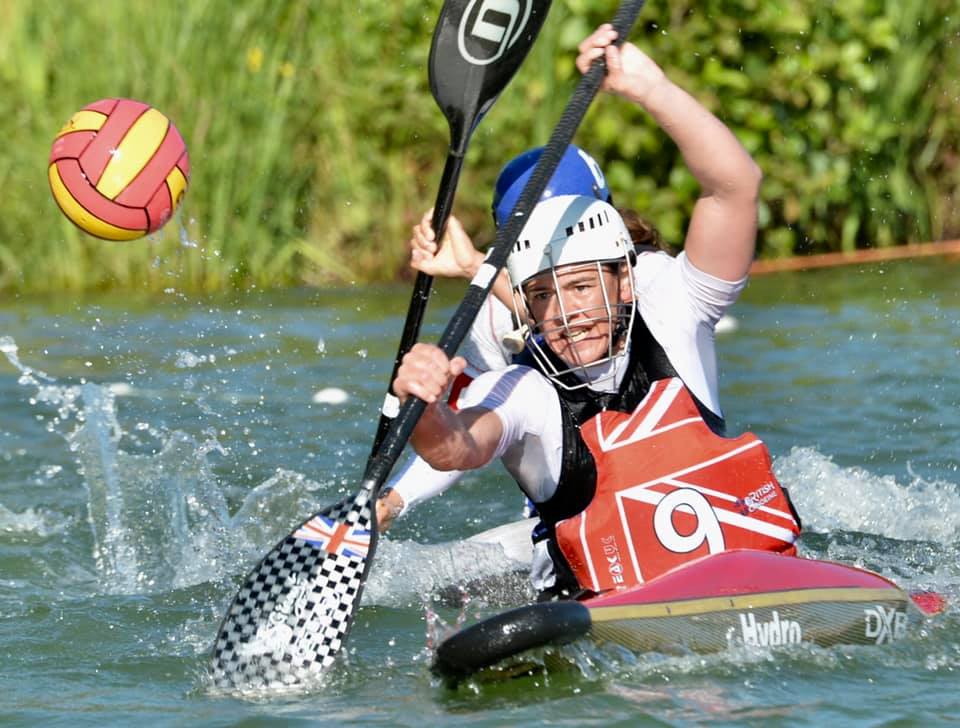
She also has a wealth of experience in providing professional biomechanical performance analysis, including for Team GB at the London Olympics in 2012.
Most recently, in 2019 and shortly before her retirement from canoe polo, Dr Coyles and her Team GB side took home gold medals having triumphed in the European Canoe Association (ECA) Canoe Polo European Championships in Coimbra, Portugal.
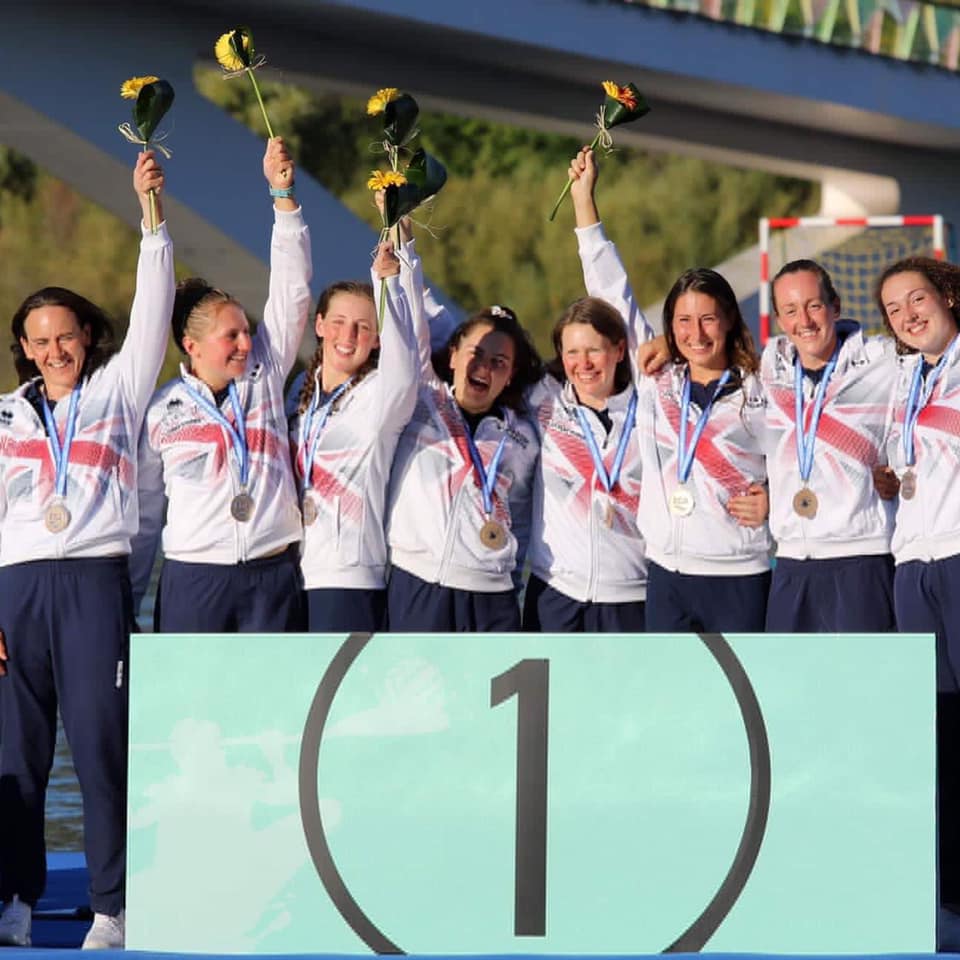
(Dr Ginny Coyles, far left)
It was Dr Coyles’ goal in overtime that took the GB Women through to the final following a nail-biting semi with France. Dr Coyle also scored in the final itself, a tense 2-1 victory over Germany.
And while Dr Coyles plays-down her incredible successes, she’s using the knowledge she’s gained from sport to prepare Hope students for the next steps in their careers.
Dr Coyles, who has worked within the Centre for Human Sciences at global defence technology firm Qinetiq Ltd as well as for the English Institute of Sport (EIS), explains: “From a teaching point of view, it’s great to be able to rely on my real-world experiences to show how something from the theoretical side of things can be applied into a workplace environment.
“It’s about being able to provide guidance to students about how they can objectively analyse information while out in the field.
“I also hope that the range of practical seminar sessions we offer are also really useful for students, in that they’re not always based on things that you necessarily read about in a research paper, but how you can take the core ideas and translate them to often challenging environments.
“We can also make assessments much more applied, thinking about how they can be reflective of the coach-athlete environment, designing tasks that would mirror this particular relationship, alongside addressing the interdisciplinary nature of sport science.
“With our Master’s students, for example, we stage ‘practitioner meetings’, where the student goes away and prepares as if they were a full-time sports science practitioner working in a support team. We then role-play certain scenarios with an athlete-coach interaction, and get them to problem-solve.
“And while you can end up being quite theoretical in a university environment, I think it is important to be imaginative in thinking of ways to cross that boundary into the applied setting.”
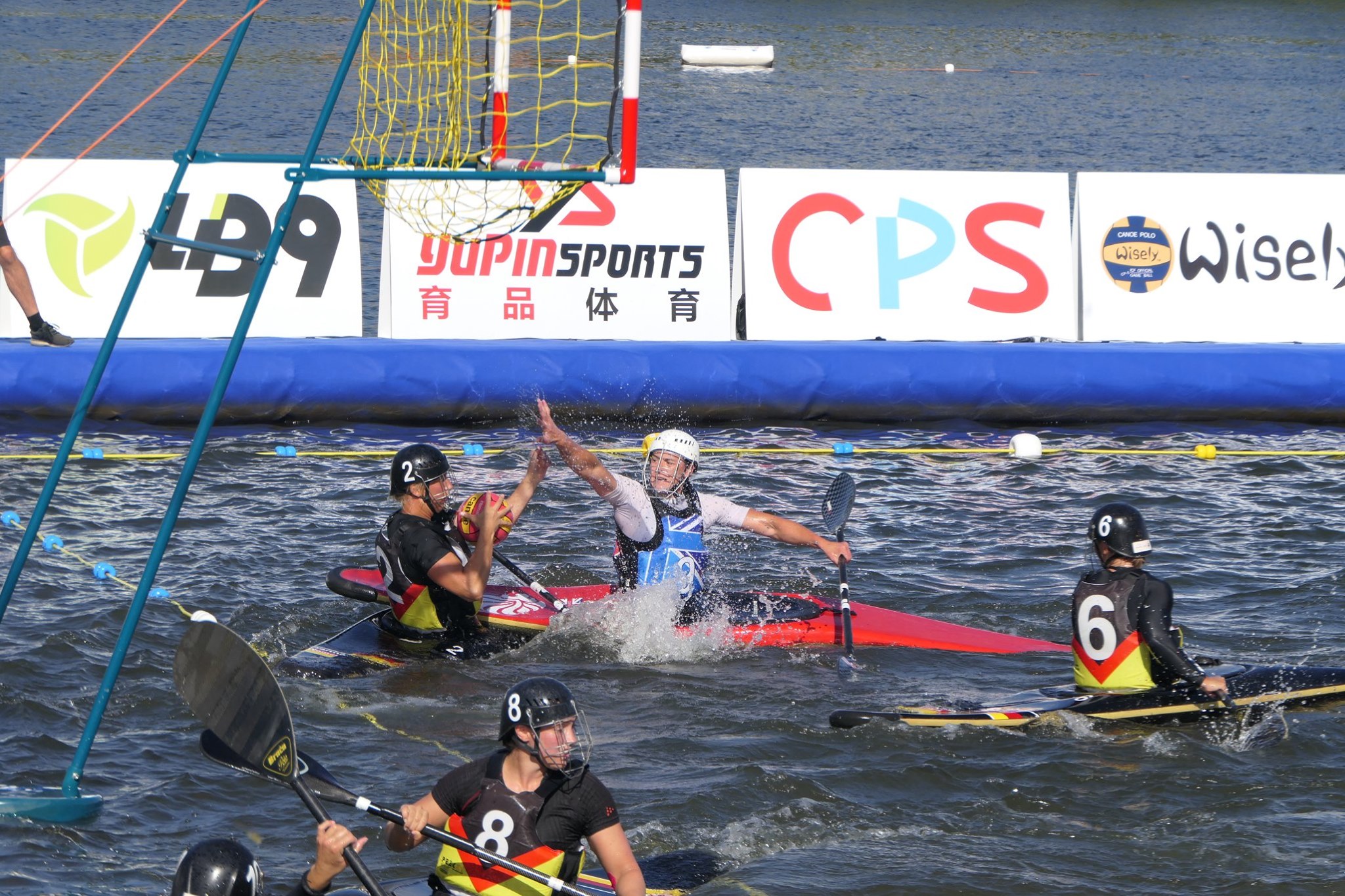
So, what is canoe polo, and how did Dr Coyles get involved with it?
It’s played by two teams of five paddlers each on a rectangular ‘pitch’.
This pitch can be in a swimming pool or on open water and it’s played over two ten-minute halves. The aim is to throw a ball - or use your paddle to direct the ball - into a goal which is suspended above the water at each end of the pitch.
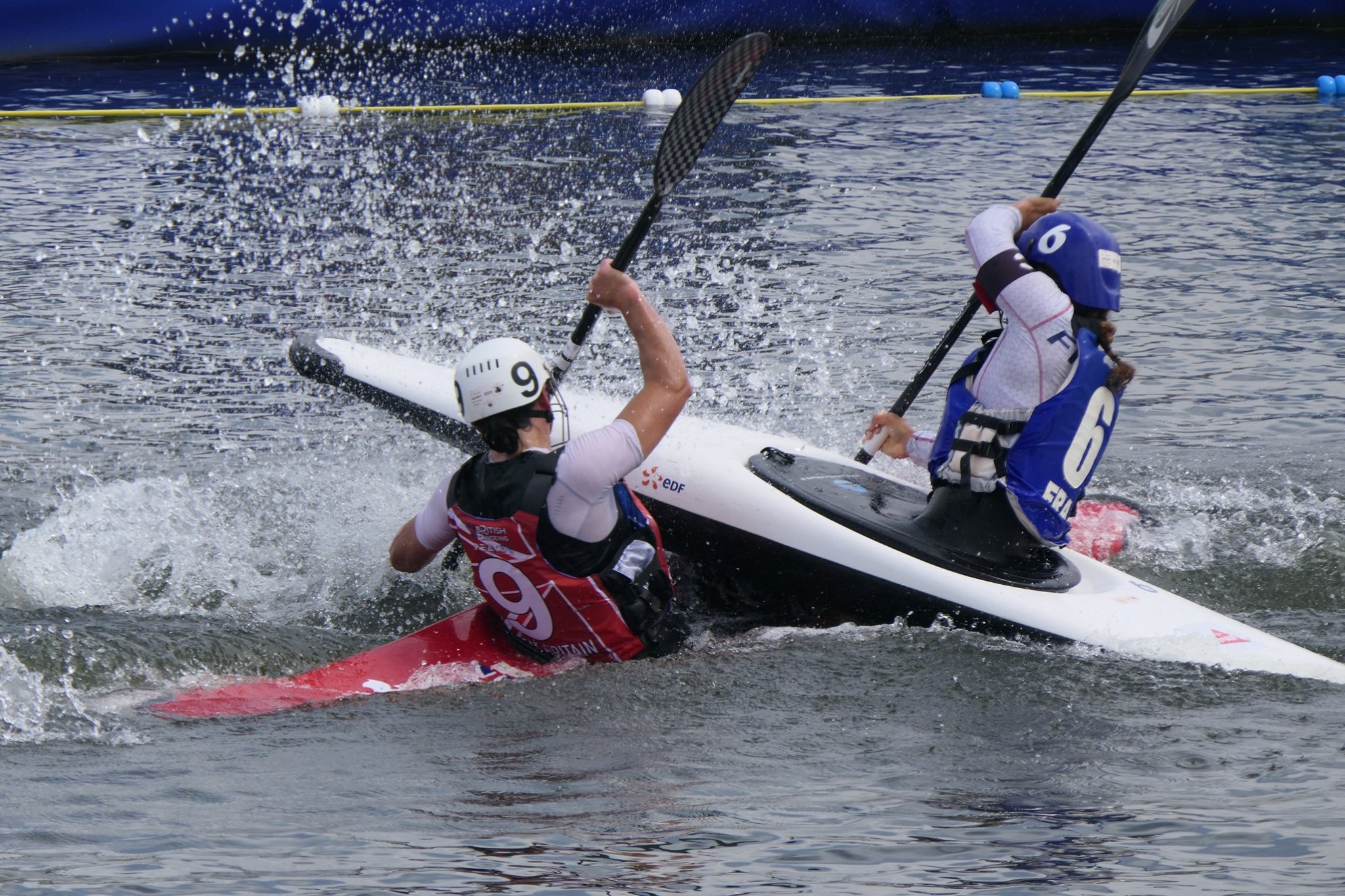
And make no mistake, canoe polo can be brutal - with boats regularly ramming into opposing players and paddles often flying into opposition faces. Even with full metal mesh faceguards fitted to helmets, the loss of teeth is a distinct possibility.
Dr Coyles took up canoe polo as a 11 year old in her hometown Whitehaven, Cumbria, and started competing aged 14.
She went on to compete at Regional, National and International League events, and has played in no less than 12 World Championships for the Senior Women's National Team. The 47-year-old has competed in Brazil, Japan, Australia and Columbia, in between two separate bouts of shoulder surgery.
She adds: “You have a good crowd at the World Championships - it’s really exciting. But once you get on the water, you have to focus and forget where you are. That’s sometimes a challenge, particularly if you’re not the favourites and the crowd might give you a little bit of abuse!”
Dr Coyles is a member of the Friends Of Allonby Canoe Club, based at Collingwood Dock, Liverpool. And she says canoe polo is a sport that’s on the up - not only are members at the club increasing, there’s also a movement to get canoe polo in the 2024 Olympic Games.
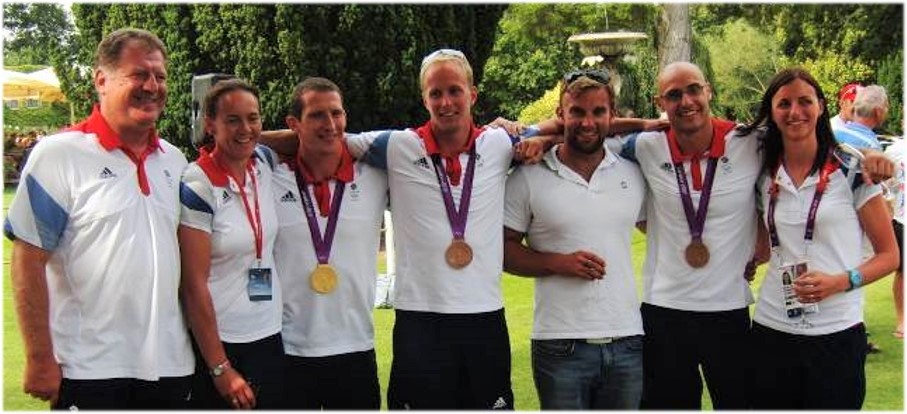
But away from canoe polo, Dr Coyles also worked as a biomechanical and performance analyst to the Team GB Canoe Sprint team, a role that saw her going to the 2012 Olympics in London.
Describing that experience, in which she helped athlete Ed McKeever claim Gold in the ‘K1’ 200m race, she says: “My role was a performance analyst that focused on something called ‘race profiling’, looking at specific measurements like stroke length, stroke rate and speed. You track them over an entire race and work out where athletes are falling short compared with their competitors and where improvements can be made.
“You might only be making a change of 1cm per stroke - but when you add that up over the course of a race, it can make a big difference.
“The Olympics experience itself was really surreal. The events took place at Dorney Lake, in Buckinghamshire, where we also trained every week.
“We went from maybe seeing one dog walker, at most, to a crowd of 20,000 people. It was really special - even more so for one of our athletes to win a Gold. Those long evenings of analysis were all worthwhile when you saw someone achieve what you wanted them to achieve.”
Despite having called time on competitive action, Dr Coyles still gets out on the water when she can and now enjoys longer distance paddling on the tranquil, flat rivers of Cheshire.
And she’d urge others to make taking up canoeing one of their new year’s resolutions.
She adds: “Even if you’re not competing, it’s nice just to get out on the water.
“And I’d encourage others to give it a go. From a sporting point of view, it’s low impact compared with running, which is often associated with lots of injuries. I also think it’s good to do upper-body sport, particularly as you get older, as it’s great in terms of strength.”
** Liverpool Hope University’s School of Health and Sport Sciences



